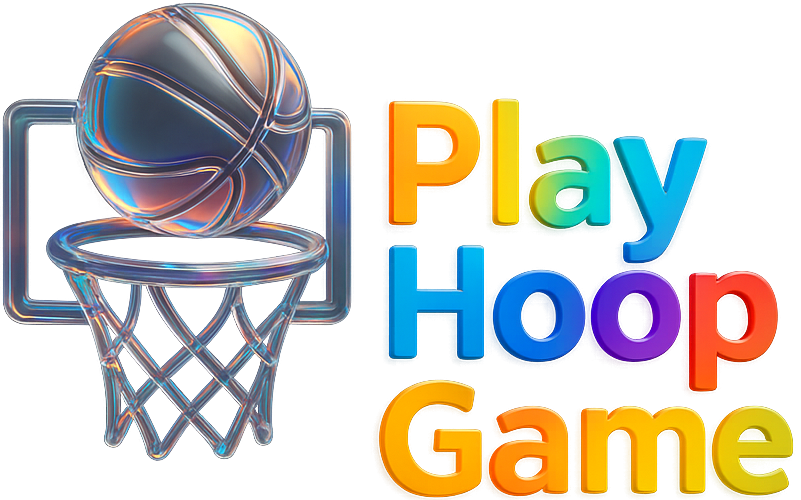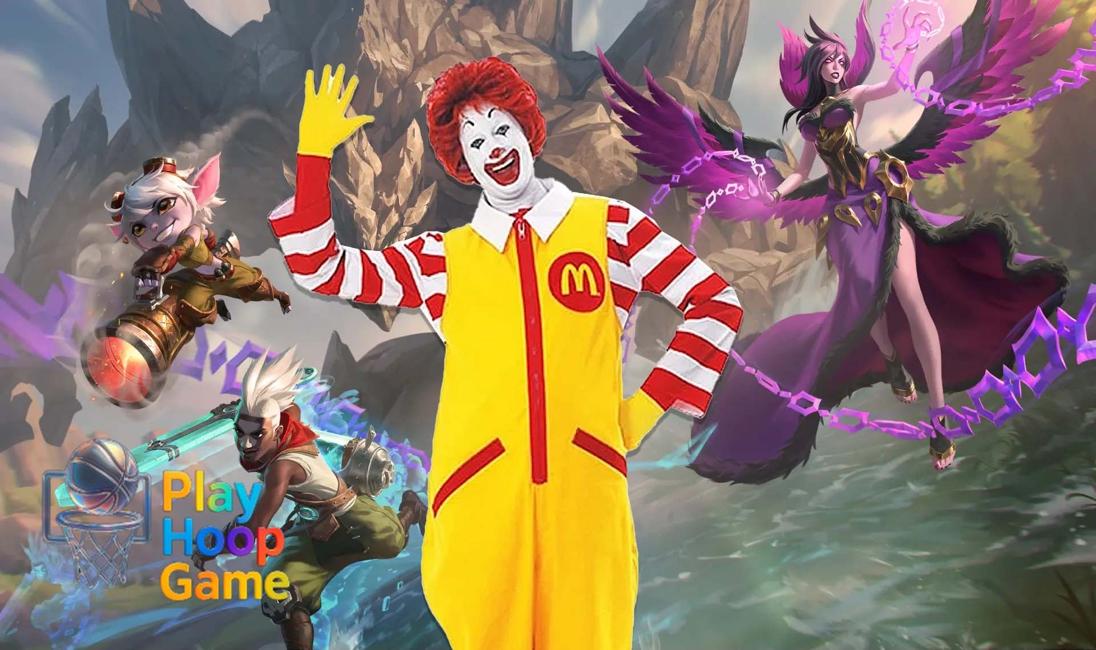You know, some stories just feel like they were forged in the very soul of the internet. They’re a perfect, chaotic cocktail of pettiness, digital justice, and corporate-speak colliding with raw, unfiltered gamer rage. And this story? It’s a top-shelf concoction.
A Riot Games developer, a person who literally helps build the digital world of League of Legends, sends a McDonald’s application link to a player. Not just any player. A player who openly, and quite proudly, makes a living by boosting accounts—the digital equivalent of being a professional line-cutter, but one you pay to ruin everyone else's day.
It’s just… chef’s kiss. Perfect. No notes.
I’ve been playing League for what feels like a geological epoch. I’ve survived the Heart of Gold meta, I remember when Sunfire Capes stacked, and my mouse hand has the calluses to prove it. And in all that time, I’ve seen my fair share of games torpedoed by someone who clearly didn’t belong in my lowly ELO. The 25-0 Yasuo who moves with a prescience that borders on clairvoyance. You know the type. You report them, you grumble, you move on. You assume your report vanishes into the same digital ether as your hopes and dreams of hitting Gold rank that season.
But to see a dev actually confront one? And not with a sterile, corporate “Your account has been suspended for violating our terms of service” but with the digital equivalent of a condescending pat on the head and a “Maybe try flipping burgers?” It’s cathartic. It’s the raw, unfiltered response we’ve all wanted to give.
So, What Exactly Is This Whole Boosting Mess?
For the uninitiated, let’s break this down. Account boosting in League of Legends is a black-market service. It’s simple, really. A low-ranked player (let’s call him Sad Bronze Brian) is tired of being stuck. He wants the shiny ranked rewards—the victorious skin, the border, the bragging rights—but lacks the skill or the time to earn them himself.
So, Brian pays a high-skilled player (let’s call him Challenger Chad) a fee. Chad then does one of two things:
- Piloting: He logs directly into Brian’s account and plays for him, stomping his way through the lower ranks with ease. This is the most blatant, and riskiest, form.
- Duo Boosting: He creates a new, low-ranked "smurf" account and plays alongside Brian, effectively carrying him to victory in game after game.
Why is this such a big deal? Because it fundamentally breaks the entire competitive ladder. The matchmaking system is designed to create fair, balanced games by putting ten players of roughly equal skill against each other. It’s a delicate ecosystem. Boosters are like an invasive species dropped right into the middle of it. They create horrifically lopsided matches on their way up, and then they leave behind a player (our friend Brian) at a rank he can't possibly compete in, who then proceeds to ruin games for his new, unsuspecting teammates.
It devalues the entire achievement of ranking up. It’s like paying someone to run a marathon for you and then showing up at the finish line to collect the medal. What’s the point? It’s not like we're playing a quick round of a reflex game like Temple Run 2; this is a game people invest hundreds, even thousands, of hours into for that sense of accomplishment.
The Moment a League Of Legends Dev Sends McDonald’s Jobs Link Becomes a Legend
Okay, back to the main event. The story, as it unfolded on social media, was a thing of beauty. A well-known booster, who was apparently quite vocal about his "profession," got into a public spat. A Rioter, who works on the anti-cheat and security side of things, stepped in. The conversation escalated, and then, the final blow: the dev simply dropped a link to a McDonald's career page.
The sheer, unadulterated sass of it is what gets me. This wasn’t a faceless corporation. This felt personal. It was a human being, likely a developer who spends countless hours trying to keep the game fair, getting so fed up that they just dropped the corporate veneer entirely.
And you have to wonder what that developer's day was like. Did they just spend eight hours sifting through bot reports? Reading logs from players running scripts? Did this one booster’s arrogance just push them over the edge? I like to think so.
But here’s the other side of it. Was it professional? Absolutely not. From a PR perspective, it’s a bit of a nightmare. A representative of a multi-billion dollar company publicly mocking someone, even a rule-breaker, is a risky move. It opens them up to criticism. What if the booster was from a region with few economic opportunities and this was genuinely how they supported their family? Now, I’m not defending it—not for a second—but it adds a layer of moral grayness to what seems like a black-and-white situation.
Actually, no. I take that back. The gray area is pretty thin here. If your job is actively making a product worse for thousands of other paying customers, you don’t get to play the victim card when the product’s creator gets snarky with you. That’s just the cost of doing business.
The Strange Economy of Rule-Breaking
This whole incident shines a massive spotlight on the weird micro-economies that pop up around huge online games. Boosting isn't the only one. There's account selling, rare skin trading, and even coaching services of dubious quality. It’s a wild west of digital services, a shadow market that exists in parallel to the main game.
For some, in certain parts of the world, being a top-tier gamer is a more viable career path than many traditional jobs. They can make decent money exploiting the desires of players in wealthier countries who have more disposable income than free time. It's a fascinating and frankly bizarre aspect of modern globalism, played out on the fields of Summoner's Rift.
It shows that for a significant number of people, gaming isn't just a hobby. It's a platform, a workplace, a marketplace. People aren't just logging on to a basic hub like PlayHoopGame for a bit of fun; they're engaging in complex social and economic systems. And when you have an economy, you'll always have people trying to game the system. And you'll always have sheriffs, sometimes tired, sarcastic sheriffs, trying to stop them.
I guess, in the end, the story is so compelling because it’s so deeply human. It’s not about code or servers or patch notes. It’s about pride, frustration, and a single, perfectly deployed, soul-crushingly condescending hyperlink. It reminds us that behind the screens, behind the corporate logos and the anonymous usernames, it’s all just people. And sometimes, people get salty.
FAQs About Boosting and Bans in LoL
So, what exactly is account boosting again?
Think of it as cheating on a test, but for video game ranks. You pay a much better player to either play on your account (piloting) or play with you on a secondary account (duo boosting) to artificially inflate your rank to a level you couldn't achieve on your own. It ruins the game's matchmaking for everyone involved.
Can you get banned just for playing with a booster?
Yes, absolutely. Riot's official stance is that knowingly participating in duo boosting is a punishable offense. While it's harder for them to detect than piloting, if it's obvious (like a brand new account going 30-0 in every game with you), both you and the booster can face suspensions or even permanent bans. Don't risk it.
Why do people even buy boosting services?
It usually boils down to two things: ego and rewards. Some players feel they're better than their rank (a classic case of "ELO hell" syndrome) and want a shortcut. Others just want the end-of-season rewards, like the exclusive Victorious skin, which are only given to players who reach Gold or higher. They value the cosmetic over the journey.
Is the 'League Of Legends Dev Sends McDonald’s Jobs Link' story actually real?
Yep. It circulated widely on platforms like Twitter and Reddit. While the specific posts can be hard to track down as time goes on and things get deleted, it was a very real interaction between a Rioter on the security team and a player known for boosting. It became a legendary moment in the community for its sheer bluntness.

























